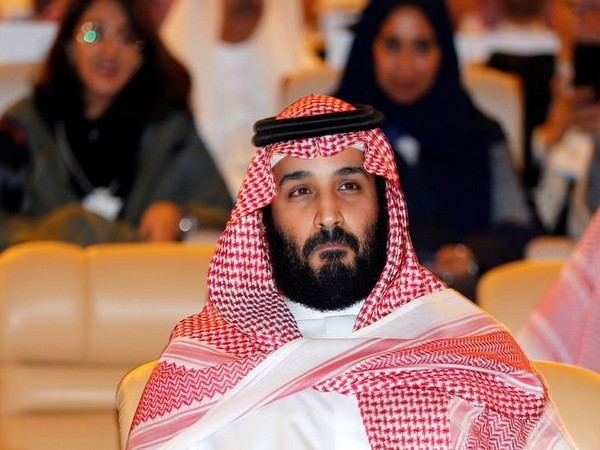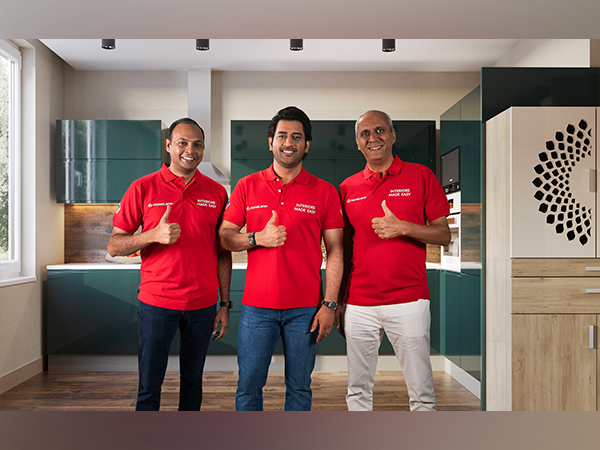
World Insights: Saudi crown prince ends fruitful Gulf tour to consolidate GCC unity
Dec 12, 2021
Riyadh (Saudi Arabia), December 12: Saudi Arabia's Crown Prince Mohammed bin Salman ended on Saturday a successful Gulf tour of Oman, the United Arab Emirates (UAE), Qatar, Bahrain and Kuwait, aiming to boost cooperation in the region to face common challenges.
The visit was intended to bridge differences among members of the Gulf Cooperation Council (GCC), strengthen relations between Saudi Arabia and its neighbors, and coordinate their policies on Iran and other issues in preparation for the GCC summit to be hosted by the kingdom on Dec. 14, Saudi officials said ahead of the trip.
FRUITFUL RESULTS
The Saudi crown prince has achieved fruitful results during this round of visits.
On the political level, all five leaders of the visited countries described their relations with Saudi Arabia as solid.
The joint statement issued by Saudi Arabia and the UAE vowed to strengthen their coordination to ensure security and stability in the region. The Saudi crown prince was also awarded the Zayed Medal, the UAE's highest honor.
Kuwait's Emir Sheikh Nawaf Al-Ahmad Al-Jaber Al-Sabah awarded Mohammed bin Salman the Order of Kuwait. Qatar's Emir Sheikh Tamim bin Hamad Al Thani said the crown prince's visit would strengthen his country's ties with Saudi Arabia, which is particularly important for the current regional situation.
Analysts noted that the Qatari emir was invited to attend the 41st GCC summit hosted by Saudi Arabia in January, leading to the normalization of their ties which were cut off in 2017.
During the Saudi crown prince's visit, the two sides spoke highly of the bilateral relations, indicating that the impact of the 2017 crisis has been basically eliminated and they will return to cooperation in various fields.
On the economic level, Saudi Arabia and Oman jointly announced the opening of the first land crossing between the two countries, a 725-km road which they said "will facilitate the smooth movement of our citizens and the smooth integration of our supply chains."
Companies from the two countries signed 13 memorandums of understanding for cooperation worth 30 billion U.S. dollars, while Saudi Arabia's Public Investment Fund announced it would invest 5 billion U.S. dollars in Oman.
During the Saudi crown prince's visit to Bahrain, the two countries announced a feasibility study on the establishment of a Saudi-Bahrain Holding Company which aims at establishing joint investment projects.
In the energy sector, Saudi Arabia and Bahrain reviewed cooperation between Bahrain's Oil and Gas Holding Company and Saudi Aramco, with a focus on oil and gas, circular economy, and hydrogen production technology.
Meanwhile, Kuwait hailed its close cooperation with Saudi Arabia within the framework of OPEC Plus to safeguard stability of the global oil market, while highlighting the importance of continuing this cooperation and the need for all participating countries to adhere to the OPEC Plus agreement.
SEEKING GULF UNITY
Analysts believe that Crown Prince Mohammed's visit to the five Gulf states reflects Saudi Arabia's policy direction of attaching more importance to building its ties with its neighbors.
"Neighboring countries are crucial to the revitalization of Saudi Arabia. We have to work with our neighbors to ensure their prosperity," Mohammed said during his visit to Bahrain.
Li Shijun, a Chinese visiting scholar at the Saudi Center for Research & Intercommunication Knowledge, said that Mohammed's Gulf tour is a trip of "seeking friendship in proximity and seeking future in GCC countries."
This visit, Li said, also allowed the crown prince to fully demonstrate to the Saudi people his determination and capability to maintain regional peace and stability, strengthen relations with the Gulf countries, and eliminate past doubts about his ability to handle foreign affairs.
In the long run, it is conducive to the consolidation of the "big circle" of GCC unity and the "small circle" of Saudi Arabia's stability, Li added.
UNIFYING POSITIONS ON IRAN
The Saudi crown prince's Gulf trip, which came ahead of the 42nd GCC summit, apparently also aimed to coordinate positions among the GCC members on regional issues of common concern, including Iran.
The Gulf countries have different positions on Iran, analysts said. Oman, Kuwait and Qatar maintain normal ties with Iran, while Saudi Arabia, Bahrain and the UAE have tense relations with Tehran.
Against the background of the U.S. administration under President Joe Biden adjusting its Middle East policy, as illustrated by its steps such as restoring contacts with Iran to revive the 2015 nuclear pact and increasing human rights pressure on Riyadh, the Gulf countries fear that the U.S. would be "unreliable." Therefore, they have also started to adjust their own policies by easing tensions with Iran.
During Mohammed's visit to the UAE, a joint statement issued by the two countries stressed that the Iranian nuclear issue should be handled in a way good for regional and international security and stability. The other four countries and Saudi Arabia also made similar statements.
Li noted that the GCC is likely to form a unified position on Iran at the upcoming GCC summit in Riyadh.
The summit is also expected to reach a consensus on the issues closely related to people's livelihood, such as the joint fight against the COVID-19 pandemic and the common development of regional economy and society in the post-epidemic era.
Wang Guangyuan, an associate professor at the Middle East School of Beijing Language and Culture University in China, said the upcoming GCC summit will strengthen the economic ties among member countries, promote integration of the Gulf economy, and seek to reach a unified position on their Iran policies and the Yemen issue.
Source: Xinhua









